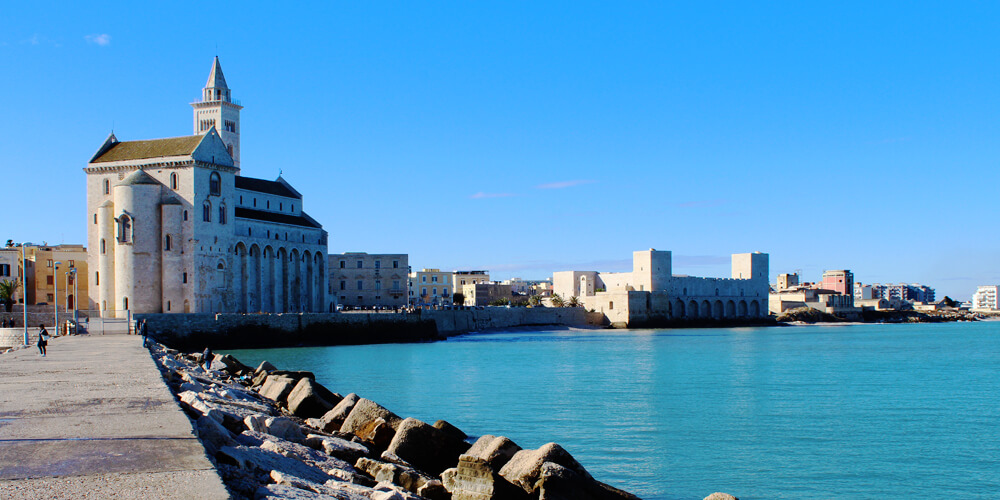Imagine you’re in 1962, in Milan suburbs. A tavern with faint light and a jukebox playing old-fashioned 33s LPs. Twist did still not arrive there. You’re in a bar where life goes on and life stories are narrated, sad stories, never happened stories. A bar where writers and painters, nowadays they would be defined as emerging, tell their stories and express their ideas, weird ideas sometimes. Stories bathed in wine.
These inns were called Trani. Like the Apulian city, 800 km south from Milan, where those wines came from. Good quality and high-proof blended wines, brought to Milan from Southern immigrants. Giorgio Gaber vividly described the atmosphere of this taverns in his son “Trani a gogò”.
Trani's countryside
In this countryside “Moscato D.O.C. di Trani” is produced and bottled, golden yellow with intense scent, sweet and velvety taste, excellent with almond based desserts, typical of the region.
Trani, the town
The port area, vivacious during the morning due to fisher boats and leisure port, during the evening becomes a perfect scenario for an intense nightlife, with a lot of bars and restaurants for everybody’s taste.
About the author
Written on 12/02/2019



Leo Amoruso